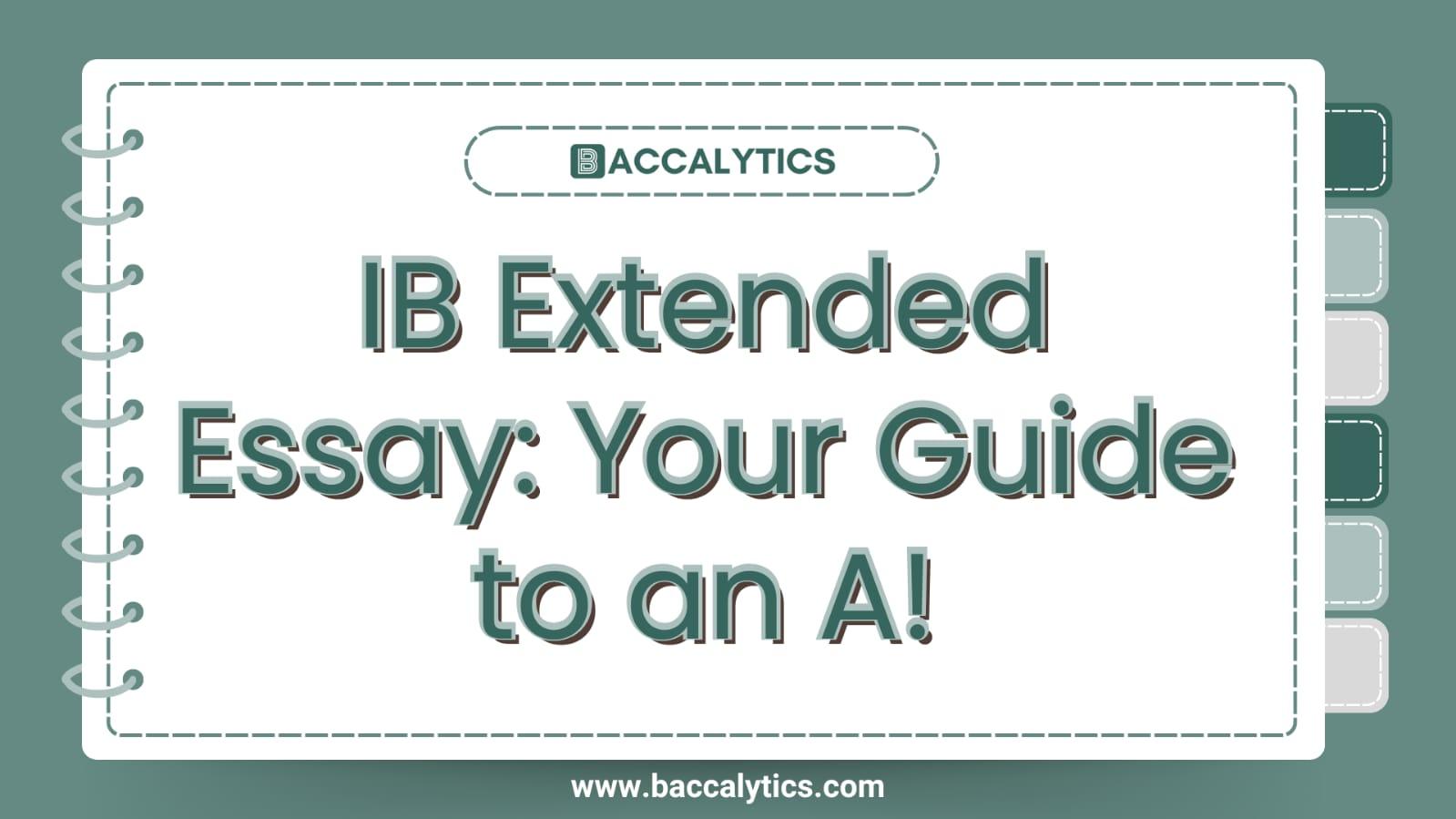
IB Extended Essay (EE): How to Choose a Topic & Get an A
Rabia Mateen
Hey IB warriors! Feeling the pressure of the Extended Essay (EE) looming? Don't worry, you're not alone. The EE can seem daunting, but it's also a fantastic opportunity to dive deep into a subject you love and showcase your research skills. Let's break down how to choose a killer topic and set yourself up for that coveted A.
Understanding the EE Beast (But It's Friendly, I Promise!)
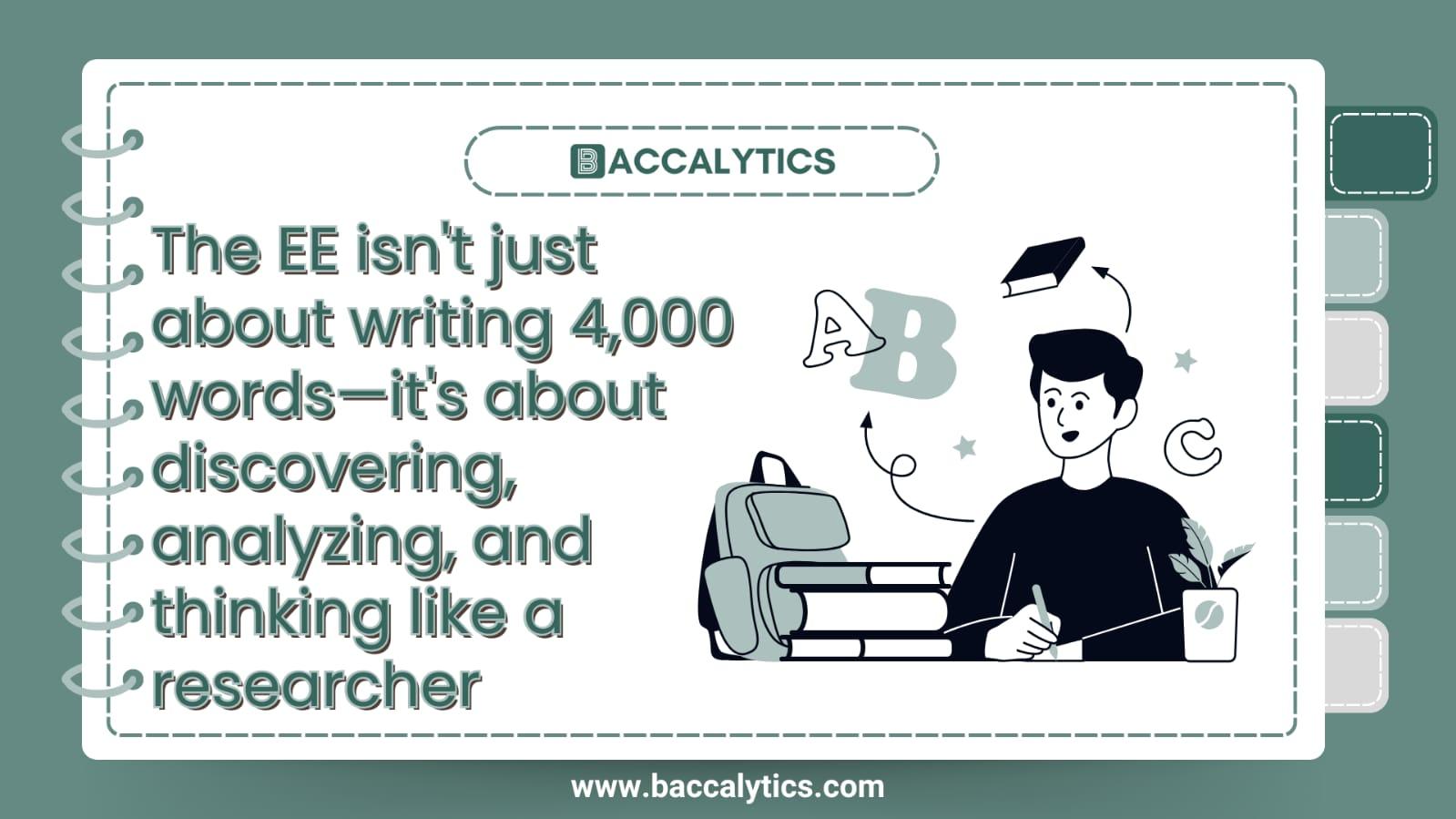
The EE is a 4,000-word research paper, a significant chunk of your IB Diploma Programme. It's designed to simulate university-level research, pushing you to explore a topic in depth. But more than just writing a long paper, it's about developing critical thinking, research, and analytical skills.
Choosing a Topic: The First (and Most Crucial) Step
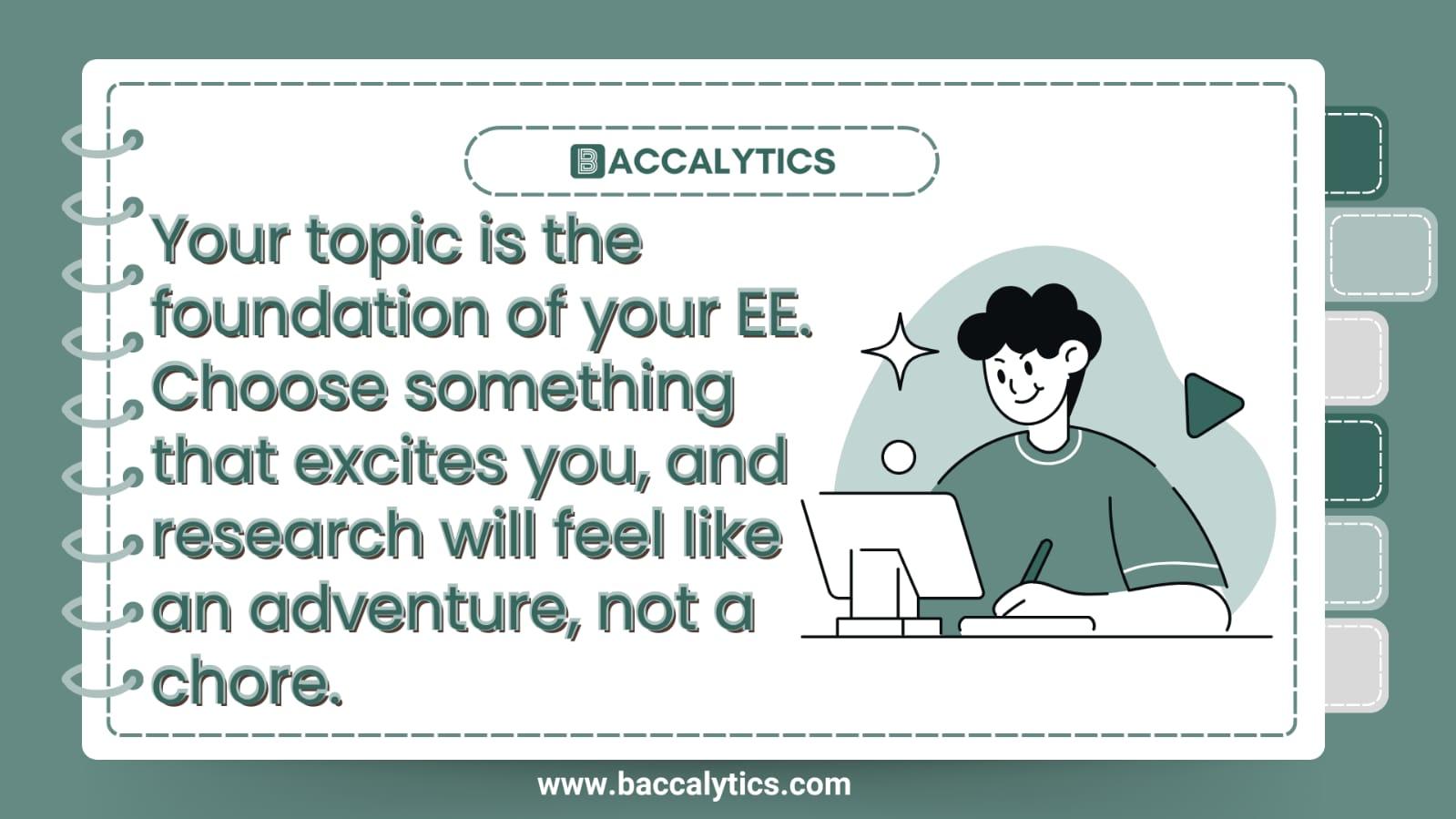
This is where many students get stuck. "What should I write about?" is a common cry. Let's make it easier:
1. Passion is Your Compass:
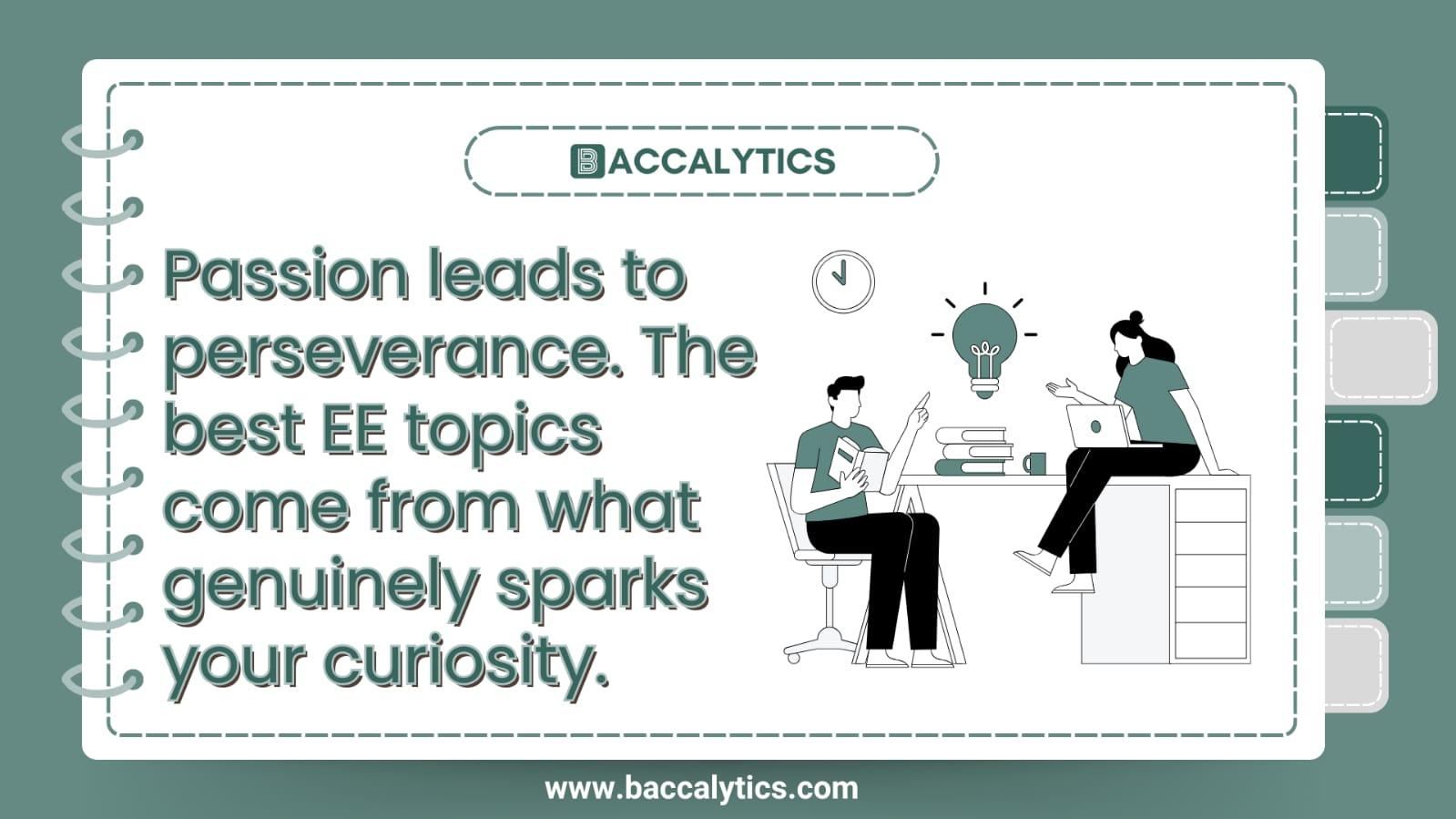
Forget trying to guess what examiners want. Instead, think about what genuinely excites you. What subjects do you love? What questions keep you up at night?
Choosing a topic you're passionate about will make the research process much more enjoyable and engaging. You'll be more motivated to dig deeper and produce a high-quality essay.
2. Align with Your Subjects (But Don't Be Afraid to Branch Out):
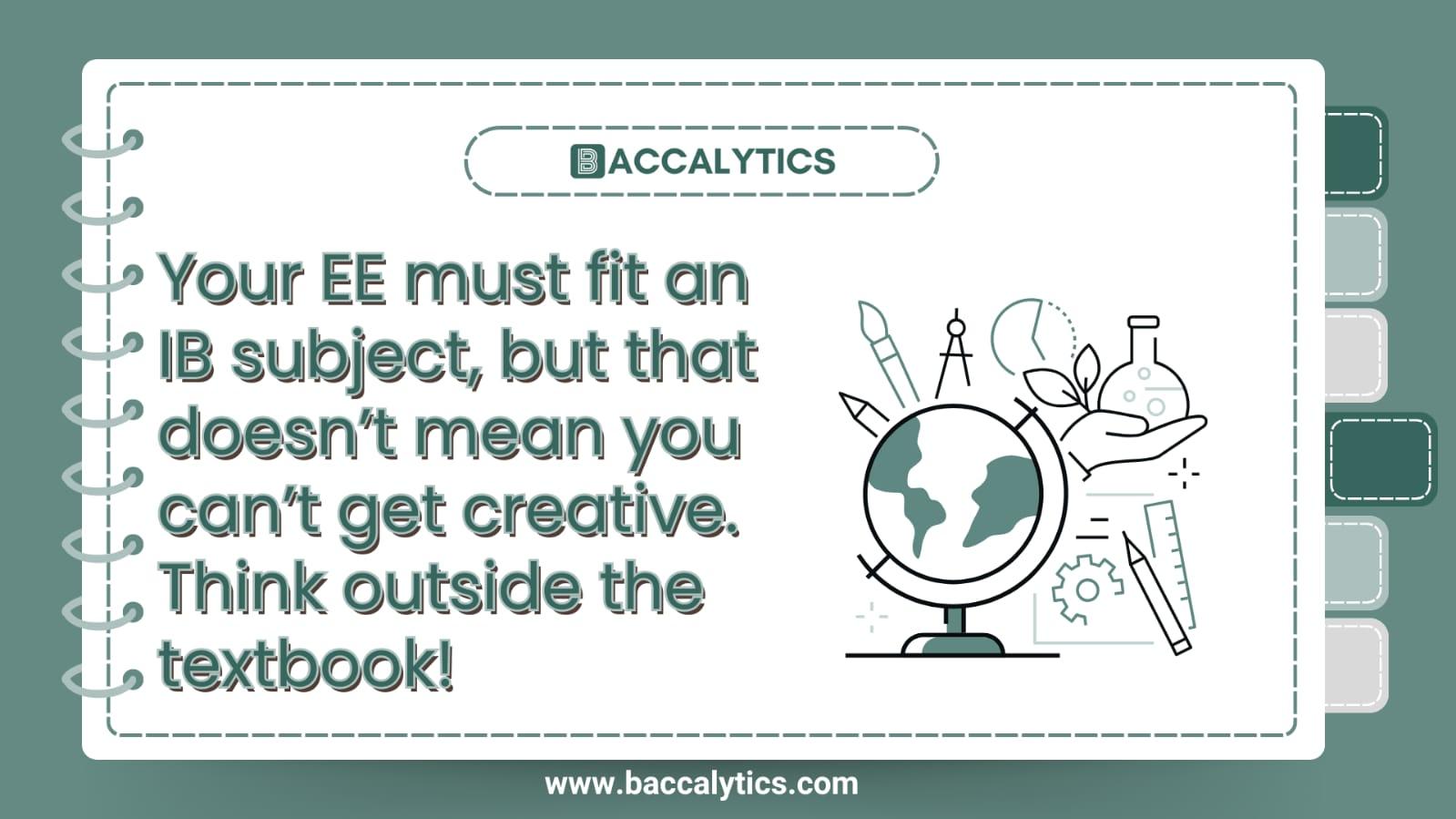
Your EE must fall within one of your IB subjects. This gives you a framework and access to relevant resources.
However, don't feel restricted to the textbook. Consider interdisciplinary topics that combine elements of different subjects. This can lead to unique and insightful research.
3. Narrow it Down, Way Down:

"History of World War II" is way too broad. You need to be specific. "The Impact of Codebreaking on the Allied Victory at Bletchley Park" is much better.
A narrow focus allows for in-depth analysis and a more manageable research process. Remember, quality over quantity!
4. The "Feasibility Check":
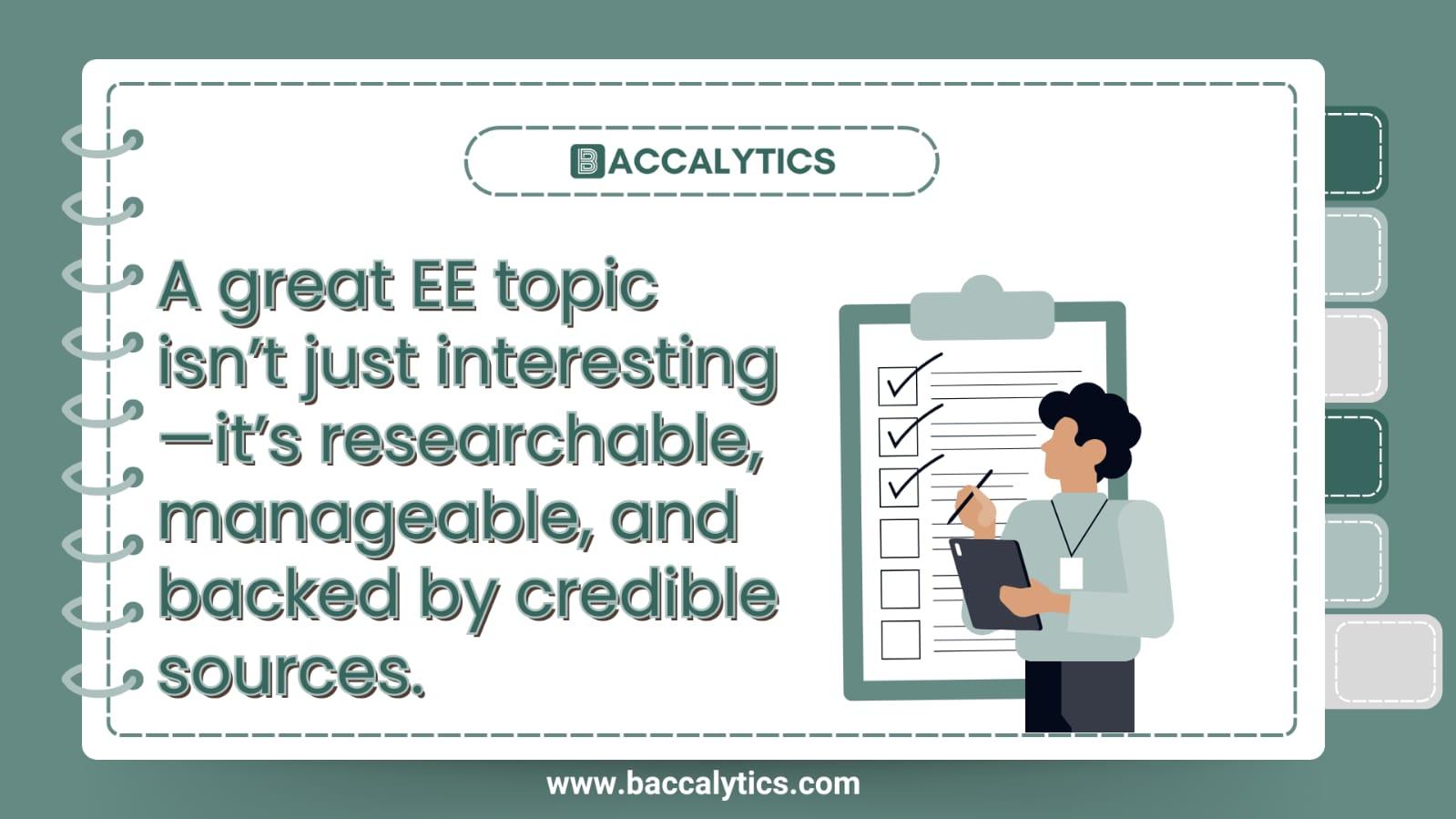
Can you access sufficient resources? Are there enough books, articles, and data available?
Is your research question answerable within the 4,000-word limit? Avoid questions that are too broad or require extensive primary research that's beyond your capabilities.
Is your research ethical? Make sure you can conduct research in a ethical way, and that you have the required permissions if needed.
Crafting a Killer Research Question: The Heart of Your EE
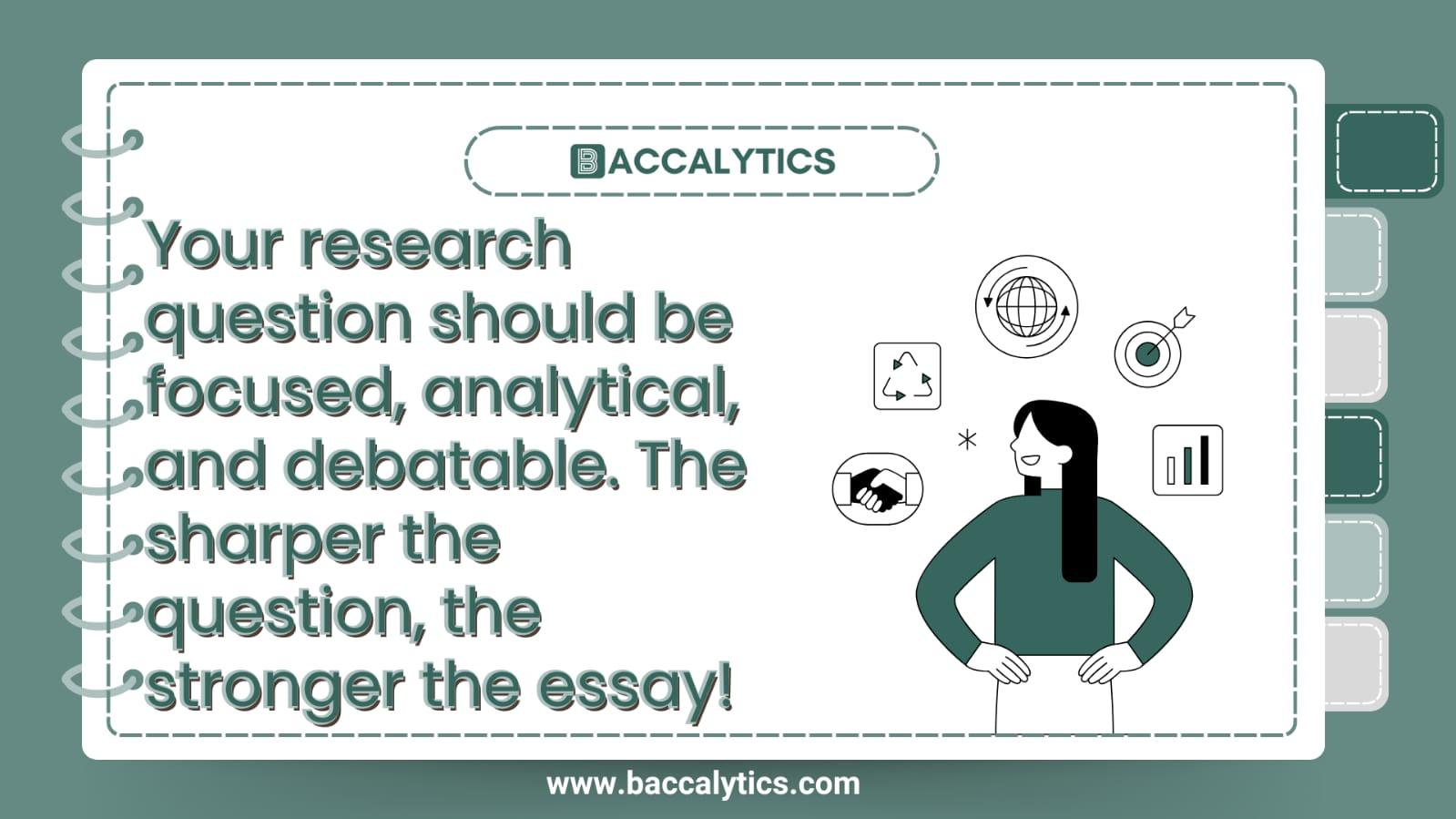
Your research question is the driving force behind your EE. It should be:
Focused: As mentioned above, narrow and specific.
Analytical: It should require you to analyze, evaluate, or interpret information, not just describe it.
Debatable: There should be room for different perspectives and arguments.
Example:
- Weak: "What were the causes of the French Revolution?"
- Strong: "To what extent did the economic policies of Louis XVI contribute to the social unrest leading to the French Revolution?"
Getting an A: The Secret Sauce
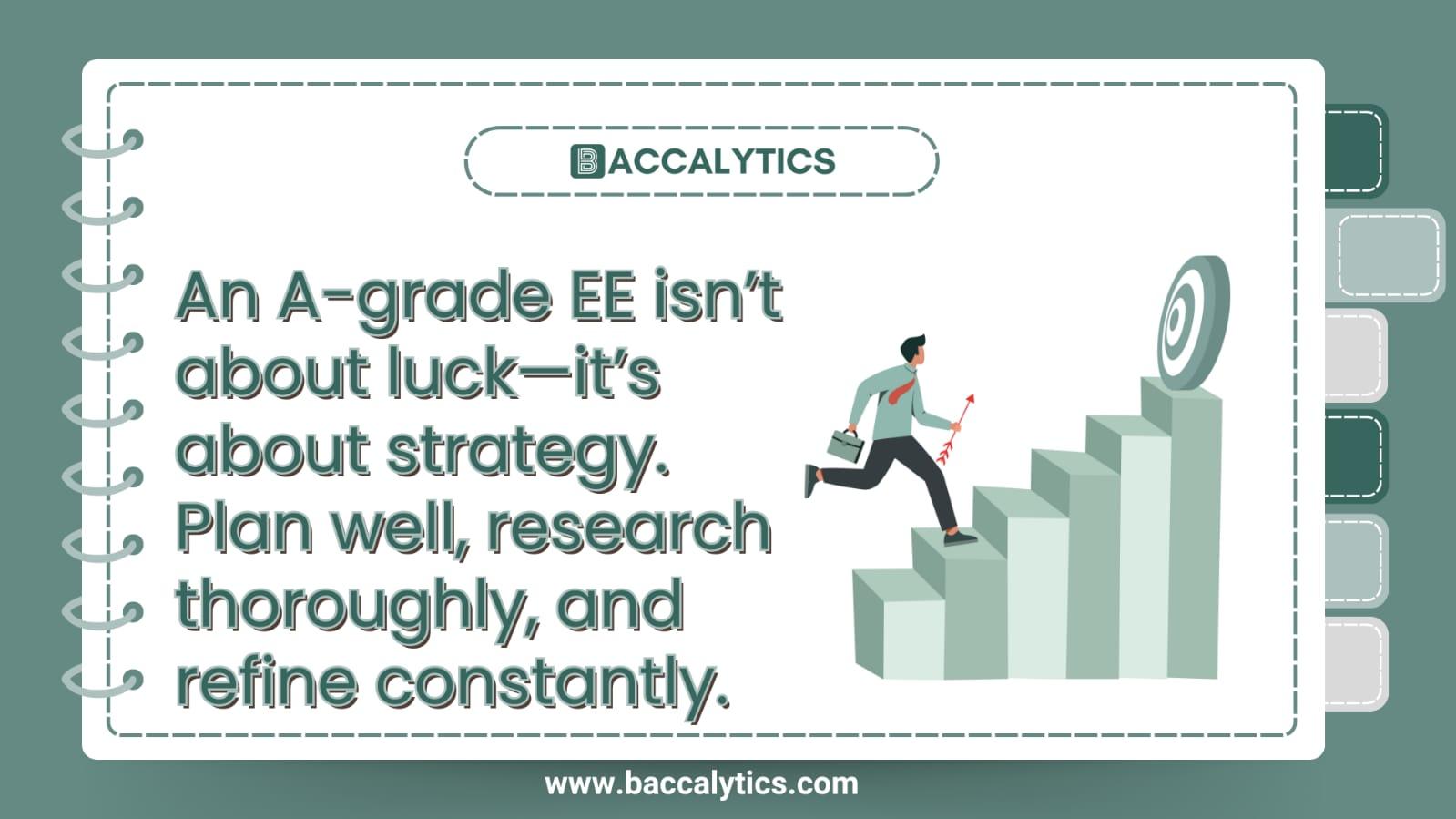
Okay, there's no magic formula, but here are some key ingredients:
1. Plan, Plan, Plan!
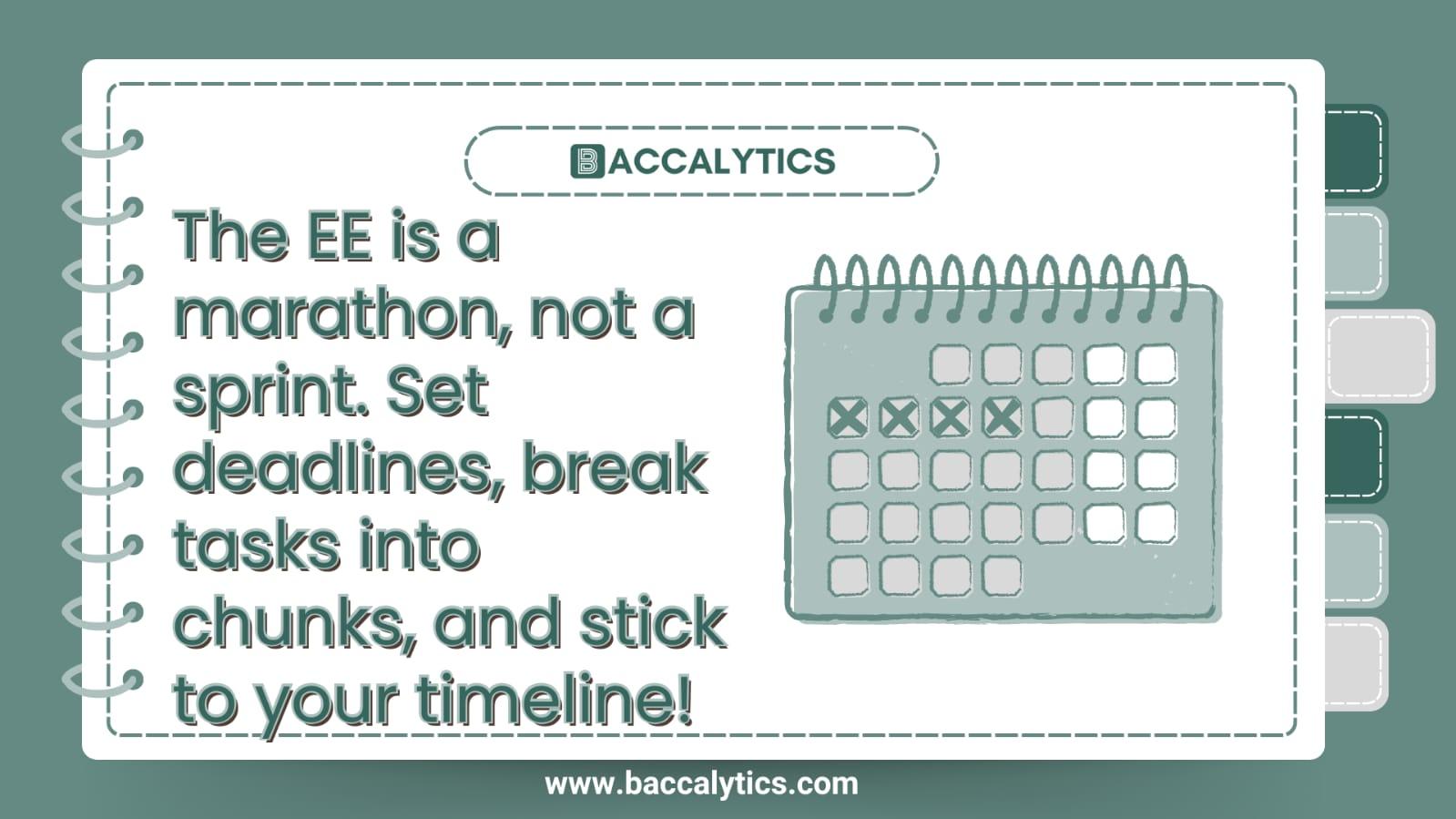
Create a detailed timeline and stick to it. Break down the research and writing process into manageable chunks.
Develop a clear outline of your essay, including your research question, methodology, and main arguments.
2. Research Like a Pro:
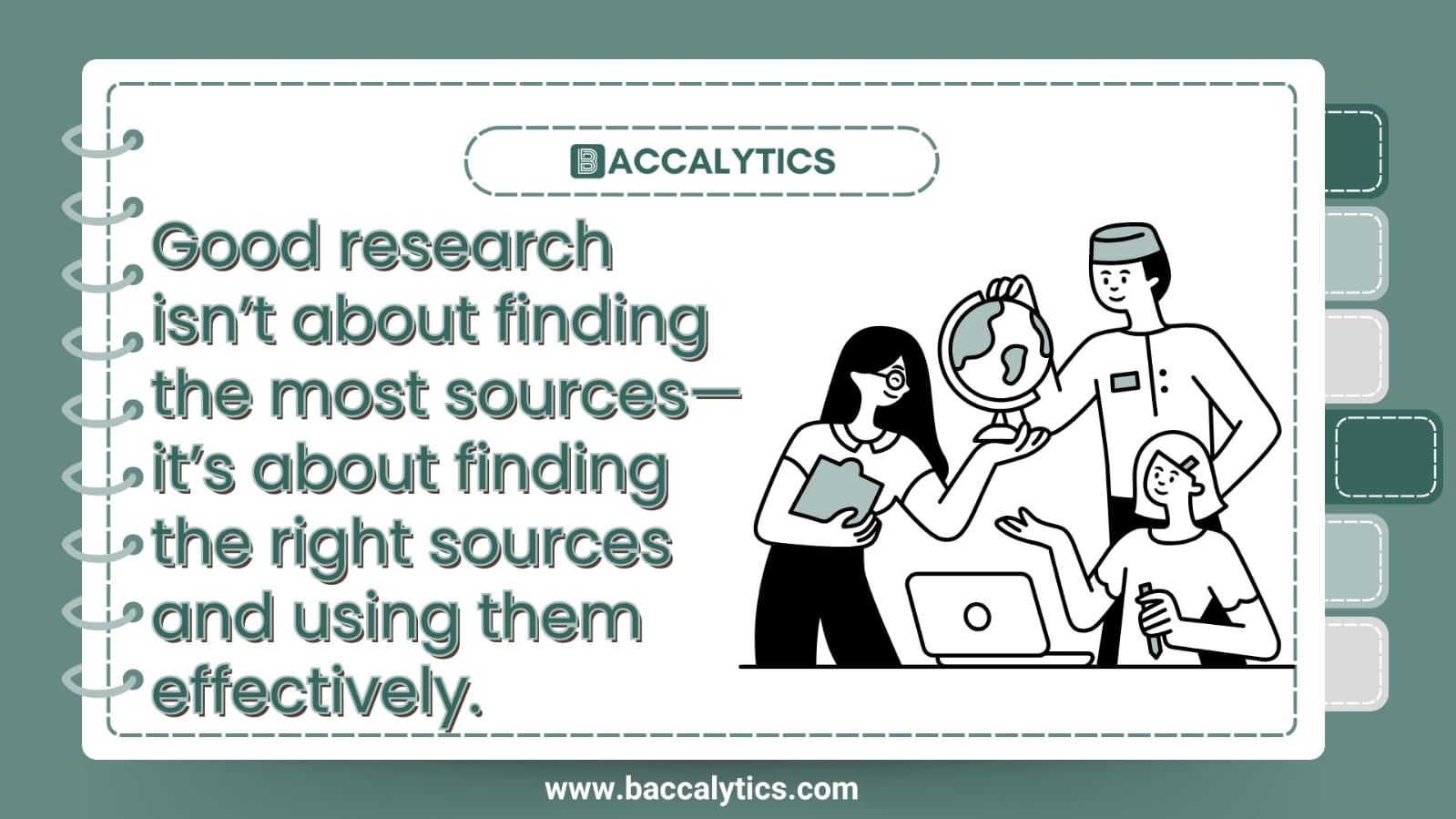
Use a variety of sources, including academic journals, books, and reputable websites.
Evaluate your sources critically, considering their credibility and bias.
Keep detailed notes and track your sources meticulously.
3. Structure is Key:
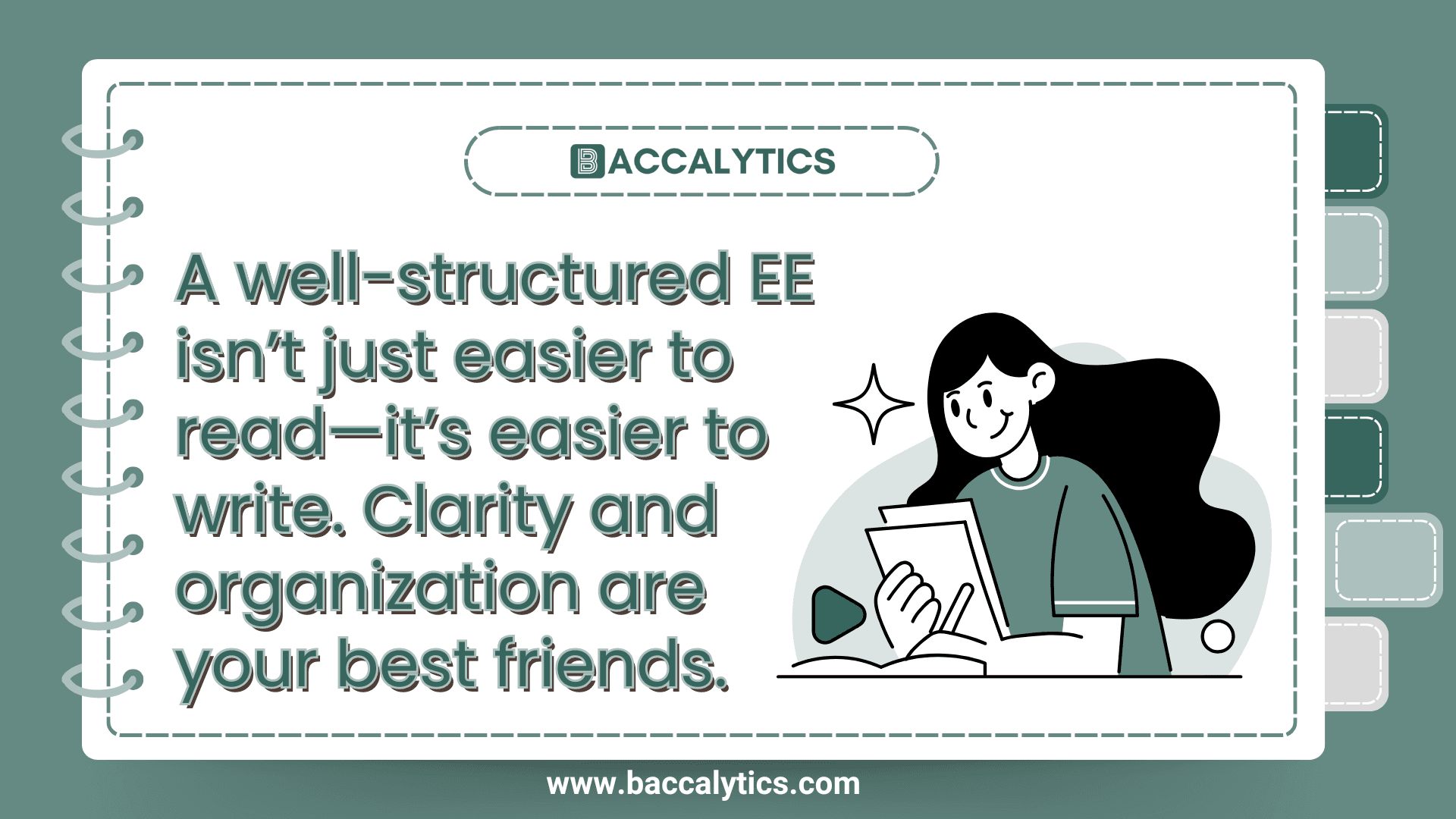
Your EE should have a clear introduction, body, and conclusion.
Each paragraph should focus on a single idea and contribute to your overall argument.
Use clear and concise language.
4. Engage with Your Supervisor:
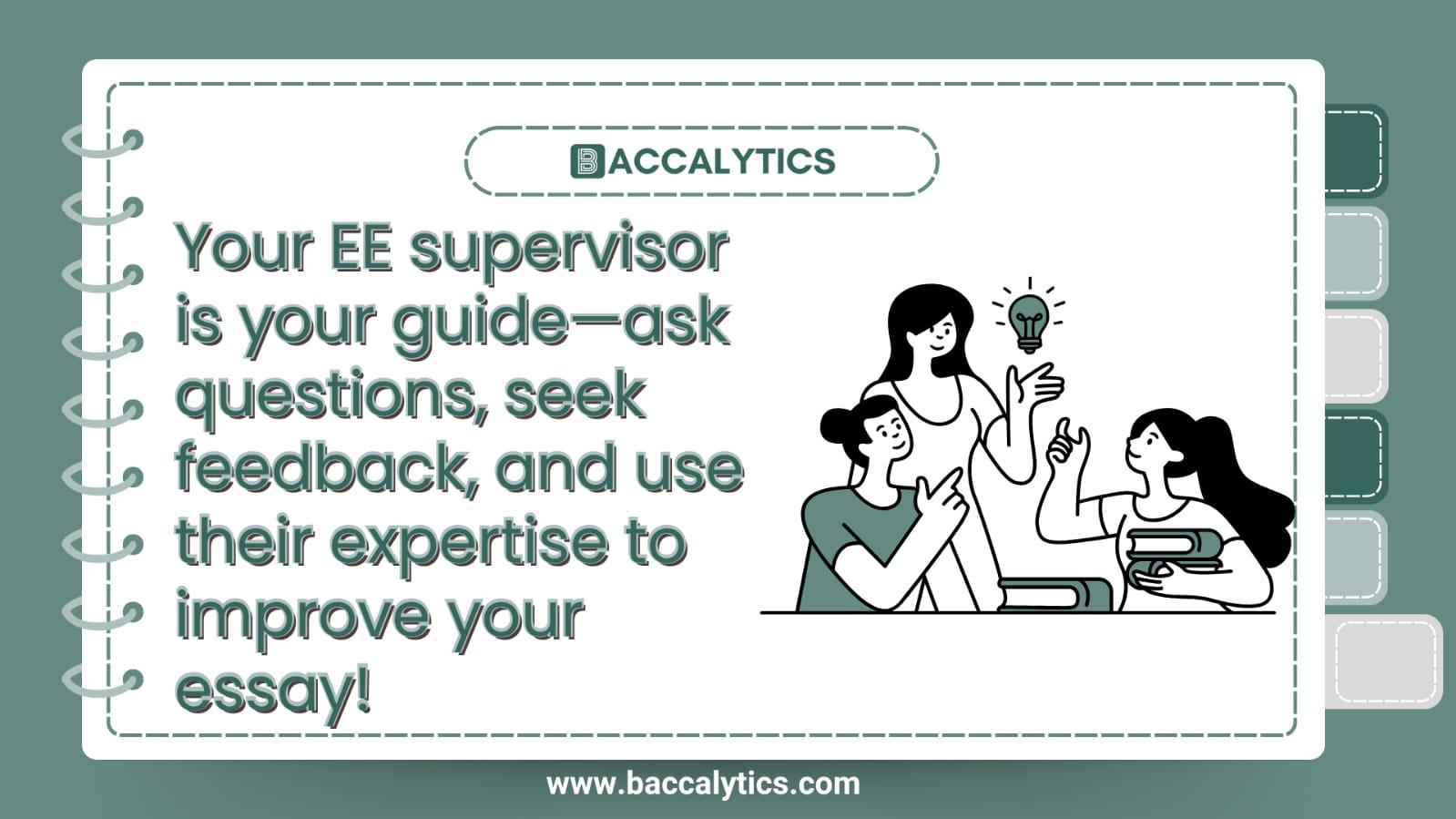
Your supervisor is your guide and mentor. Meet with them regularly to discuss your progress, ask questions, and get feedback.
Don't be afraid to ask for help! They're there to support you.
5. Reflect and Revise:
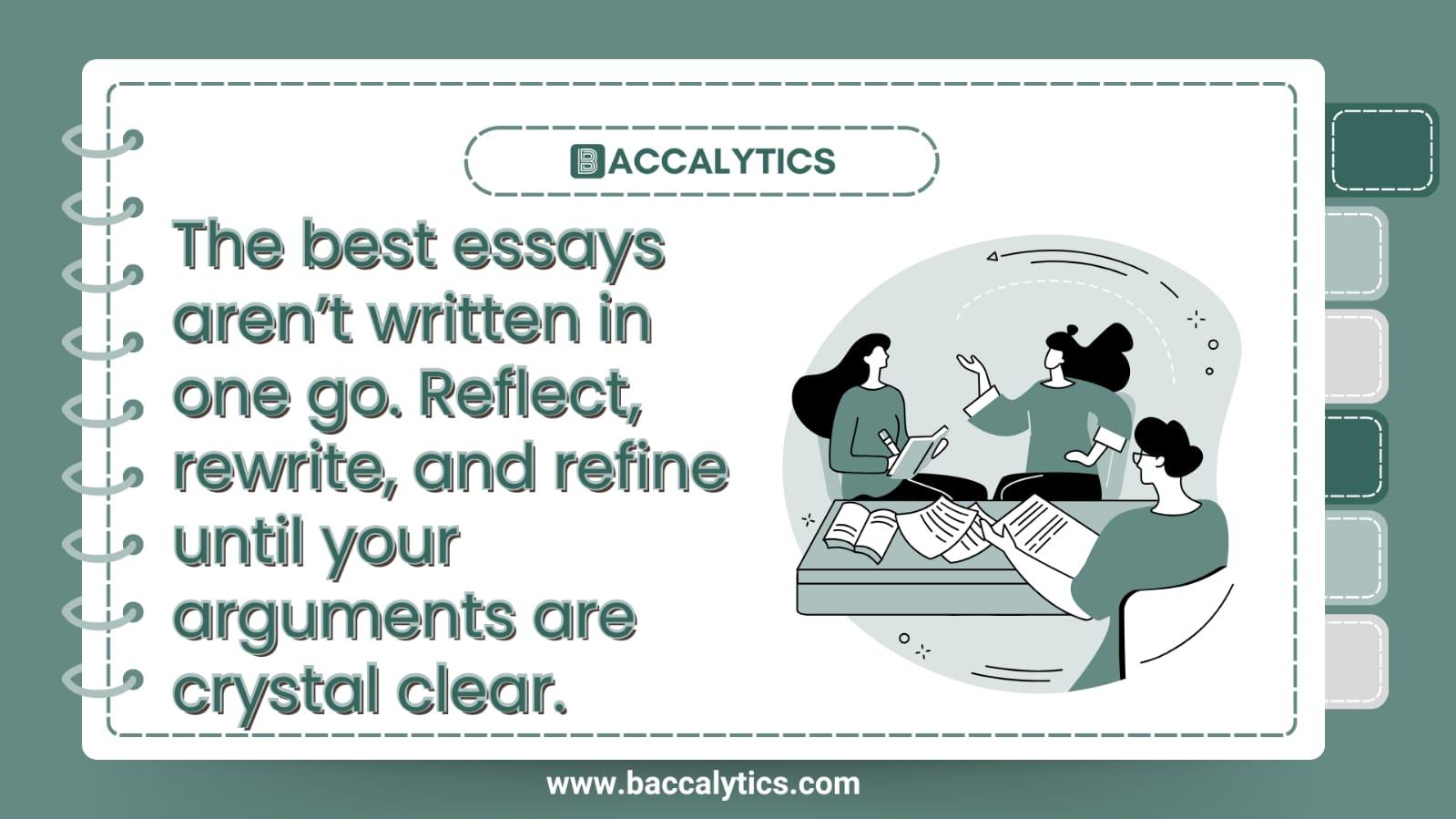
The reflection component of the EE is crucial. Take time to reflect on your research process and the challenges you faced.
Revise your essay thoroughly, paying attention to grammar, spelling, and clarity.
Have someone else read your essay for feedback.
6. Follow the IB Guidelines:
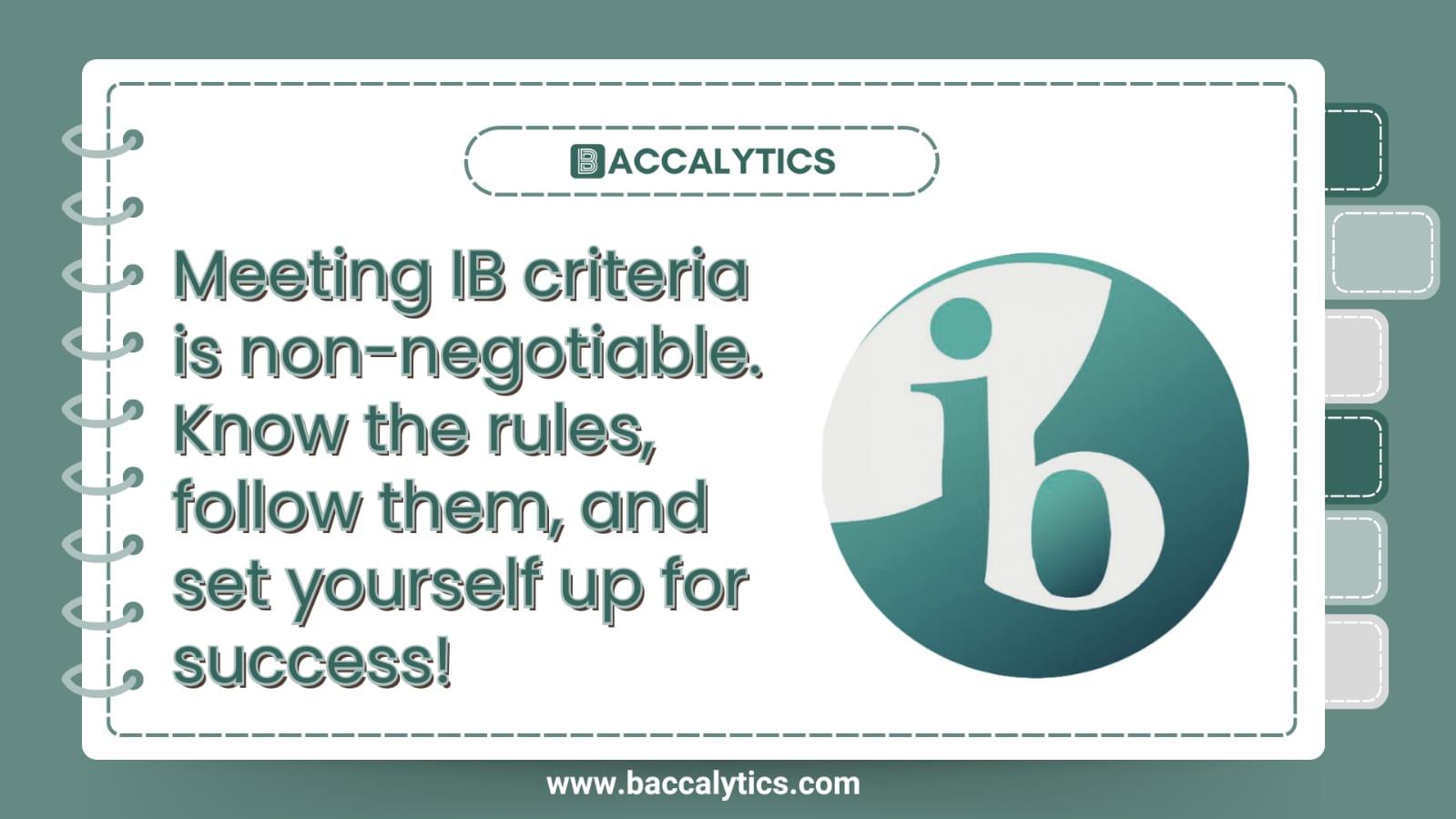
Thoroughly review the official IB Extended Essay guide, available on the IB website.
Understand the assessment criteria by consulting the subject-specific guides in the Programme Resource Centre.
Consult your school's IB coordinator for examples of strong Extended Essays.
Use resources like Purdue OWL for general citation help, and subject-specific academic journals for discipline-specific styles.
Don't Panic, You've Got This!
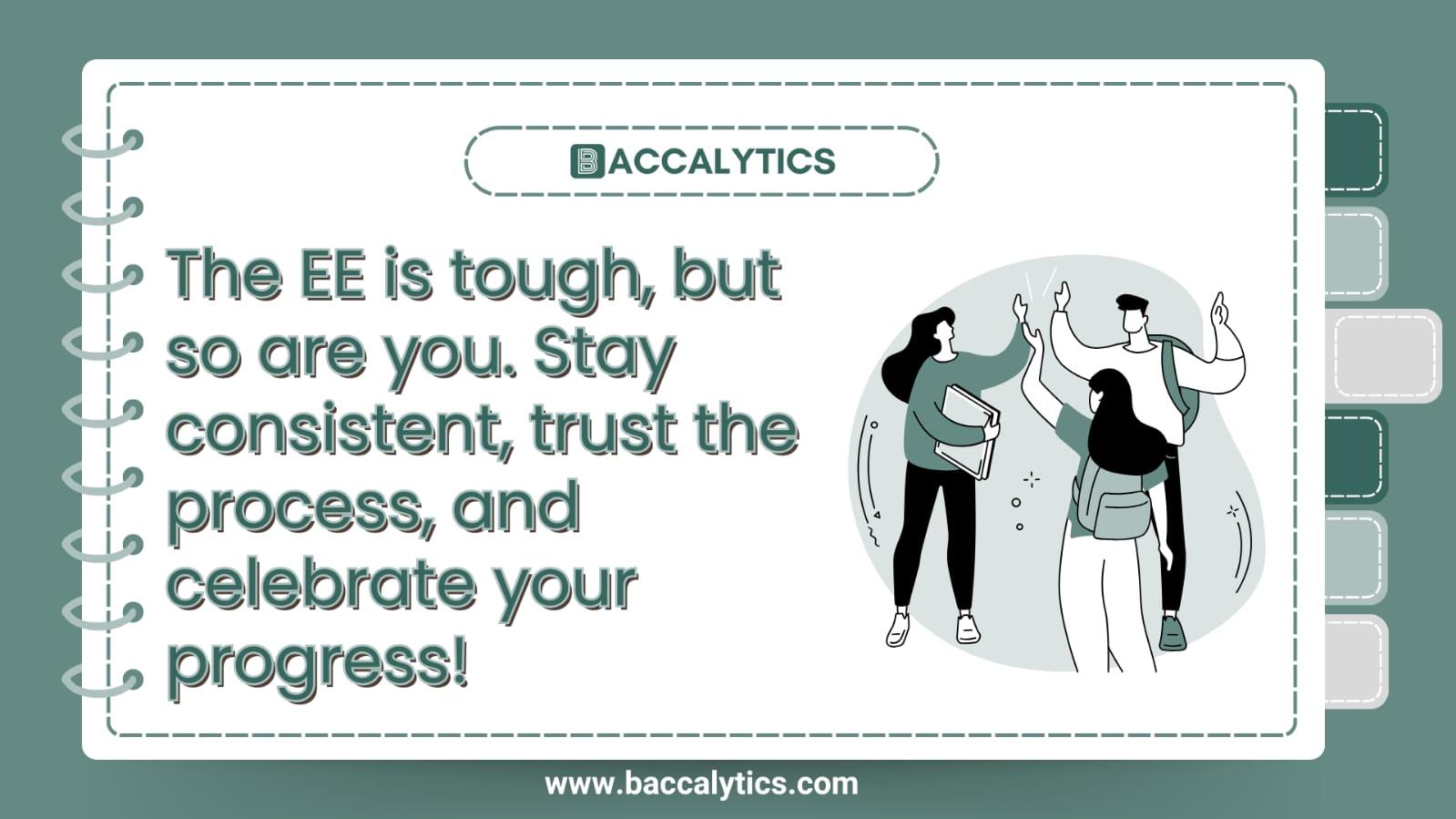
The EE is a challenge, but it's also a rewarding experience.
By choosing a topic you're passionate about, conducting thorough research, and following the IB guidelines, you can achieve a fantastic grade.
Remember to enjoy the process, learn from your mistakes, and celebrate your accomplishments. Good luck!
